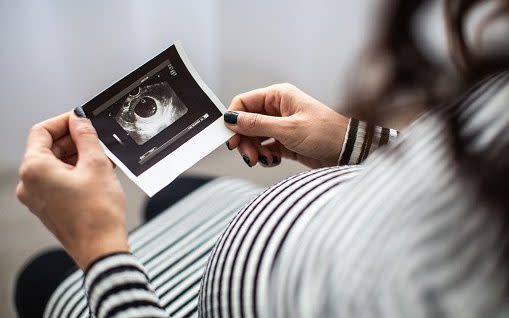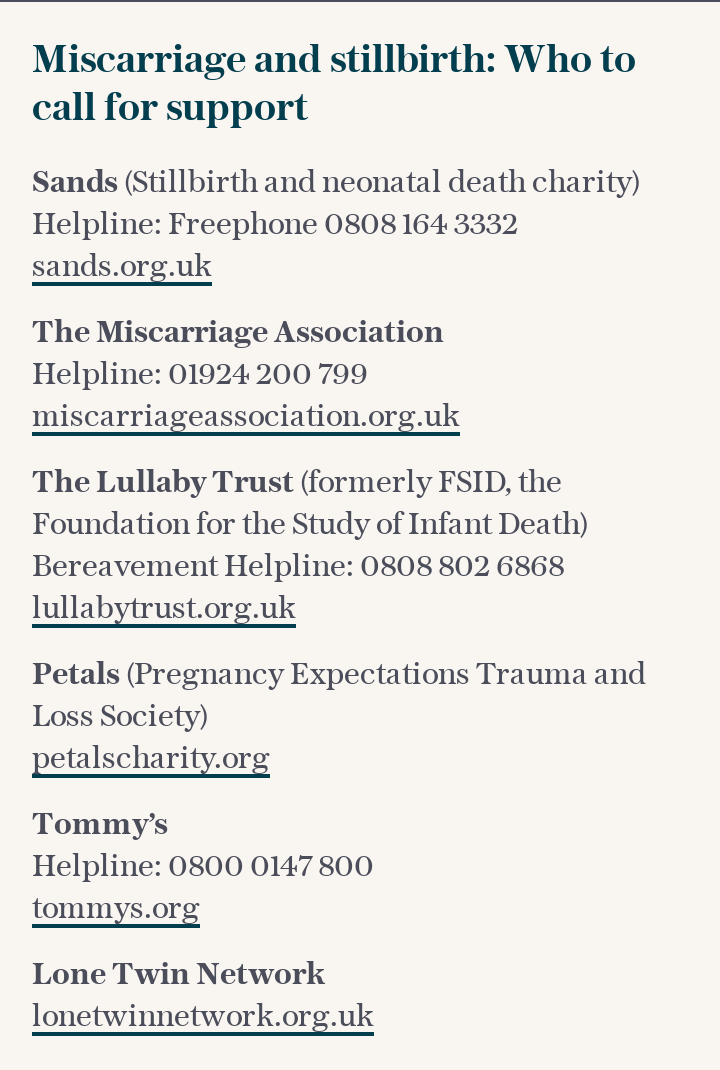What it’s like to have a baby after miscarriage

On hearing the news that Meghan Markle is pregnant again, having suffered a miscarriage after the birth of her first child, my heart broke a little.
While the news may seem joyous to most, I know only too well the heartache that can strike as you live through your third pregnancy, but as a mother of one. In July, Meghan miscarried her second child – my son Henry was 14 months old, exactly the same age as baby Archie was then, when I endured the same.
Seeing those positive lines on a pregnancy test again, as I did four months after my miscarriage in 2014, fear presided over excitement. I smiled as I received congratulations while inside, my stomach churned as I prayed that this one would survive. I was consumed by worry and anxiety, which would bubble away and then resurface with every visit to the midwife; each appointment left me petrified that this could be the day I was told that this baby, too, just hadn’t made it. A drop of blood or mild cramp would bring memories of miscarriage pains flooding back, and panic would rise once more.
Like Meghan, I had blossomed during my first pregnancy. I enjoyed (almost) every second and despite the initial morning sickness, and unavoidable aches and pains, I was frequently told pregnancy ‘suited me’. I couldn’t foresee any reason why my second experience would be any different. But it was.
My husband Jamie and I had been so keen to involve Henry in my pregnancy that we decided to take him to our three-month scan; “Kiss the baby,” I’d been cooing at him for months, and he’d nestle in next to me and plant a gentle kiss on my swelling stomach.
But lying on the bed as the sonographer skimmed the jelly-cold instrument over me, I immediately, instinctively, knew something was wrong. Questions were asked about dates, knowing looks exchanged, and then I was told: “There’s no heartbeat.”
I let out a wail and my confused toddler clung to me as we were all ushered into a side room and told that the baby inside me would never be born. Hasty arrangements were made for an ‘evacuation’ procedure and we were sent home, walking back through a waiting room filled with smiling pregnant women.
I was due to return the following day for the operation to remove the ‘blighted ovum’ in my womb – also known as my second child – but nature wouldn’t even allow that.
Ready to leave for the hospital I leaned forward to kiss Henry goodbye. A searing pain ripped through me, my entire body cramped, my stomach lurched, and an agonising burn filled my legs as I felt myself falling. Meghan wrote of clinging to her first child as she felt her second falling from her, an unbearable pain I recognised from her words: too weak to stand, I crawled up the stairs away from Henry. He was terrified. And that’s where most of it happened. Blood, clots, tissue, it all fell from me, into the toilet. Miscarriage is painful and can often be extremely traumatic. Having already endured one labour I recognised all the feelings, the pains, the contractions. But my body wasn’t pushing out a living being, it was ridding itself of a lifeless foetus and all I could do was hope it was all over quickly.
I was rushed to A&E and the clots and contractions just kept coming. It wasn’t over in minutes, there was no respite; I gave birth to dead cells for more than three hours.
After an overnight stay in hospital I went home. No newborn to cradle, no flowers and cards from well-wishers, just me – battered, bruised, and completely helpless.
The physical pain of a miscarriage can be equalled, if not exceeded, by the emotional trauma. But when you already have a child, to many it’s as if your experience isn’t quite so sad as it is for those who remain childless.
“At least you know you can carry to term,” I was told, and “at least you’ve got Henry.” No comprehension of the utter sense of failure and overwhelming grief that consumed me. Jamie was devastated when I miscarried; with tears in his eyes he told me he had never felt such sadness, but it wasn’t his body, and when I fell pregnant again I think it cured the sadness for him. I don’t blame him, and his positivity was a support for me, but having endured both the physical and emotional trauma I couldn’t bounce back so quickly.
The loss of her second baby is likely to still bear heavy on Meghan’s mind. When I fell pregnant again a few months after miscarrying, I didn’t put any pictures of my pregnant belly on Facebook until a month before my daughter was due; I was too scared that by publicly admitting it, I was somehow inviting fate to steal another baby from me.
Instead of enjoying the thrill of a third pregnancy I spent it worrying that I would miscarry again. Jamie worried too, that flush of excitement and increasing joyful anticipation just wasn’t possible for either of us. I bled throughout, and suffered many complications, one involving a blue-light dash from Peppa Pig World to Southampton General Hospital as my body battled to keep hold of my daughter inside.
Every day brought questions of whether things were OK, and a constant hyper-awareness of what was going on within. When you don’t feel that flutter, when the baby doesn’t stick to its regular wriggling schedule, inevitably the panic that something is wrong sets in.
When my daughter Beatrice was born, it completed our family. As she grew past toddlerhood we did discuss trying for a third child – ultimately, the risk of something going wrong, and potentially threatening the happiness we had reached, convinced us otherwise. But that doesn’t mean I don’t still grieve for the one that didn’t make it.
Read more on miscarriage:
Don’t be afraid to reveal pregnancy before 12-week scan, say charities
‘I tried to play the strong man when my wife miscarried – but I was crumbling inside’
The hard conversations I had to have with my children after losing a baby



